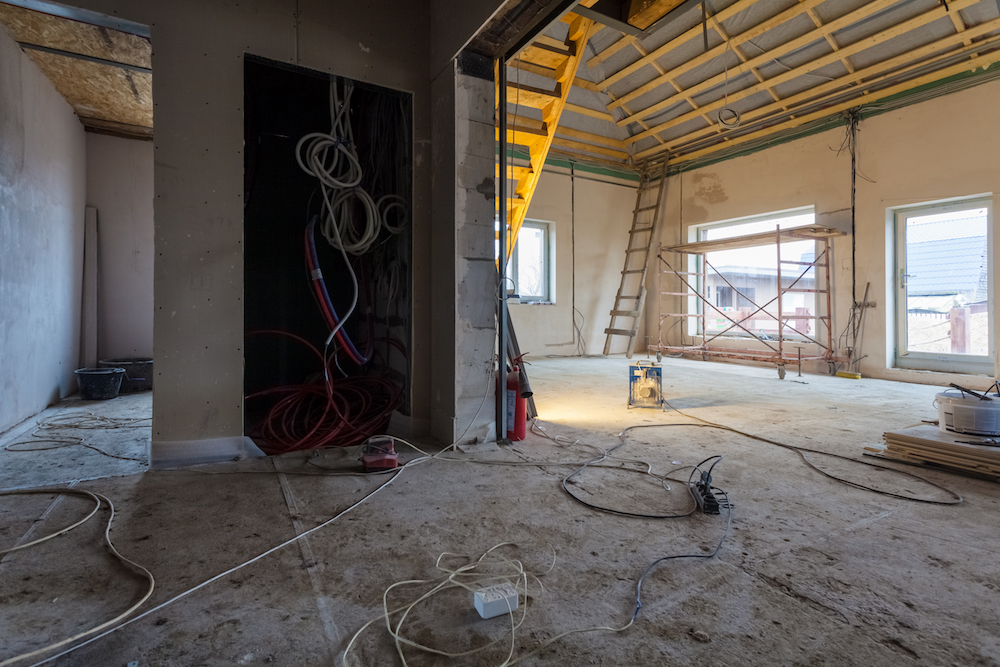
Payment bonds are typically associated with public works projects. However, they can be used on private jobs too. After recent Mississippi legislation, payment bonds can now be used in place of mechanics lien rights on private projects.
Payment bonds on Mississippi private construction projects
Filing a mechanics lien on a private construction project is one of the most powerful recovery options available. However, in some cases, an owner or contractor can secure a payment bond which will actually stop a mechanics lien from attaching to the project property.
This isn’t necessarily a bad thing for claimants. In fact, when there’s a payment bond in place, that bond will actually make sure that there are actually funds available to pay the claim. However, it will tweak the recovery process somewhat.
By passing House Bill 869, Mississippi now allows contractors to use payment bonds to prevent mechanics lien filings on their projects. But again – this doesn’t negatively impact would-be lien claimants. Rather, it might actually empower them.
Further discussion:
- Payment Bonds on Private Construction Projects
- What’s the Difference Between a Lien Claim and a Bond Claim?
Mississippi contractors can obtain payment bonds to prevent mechanics lien claims
The biggest change under HB 869 is adding section 85-7-432 to the state’s mechanics lien statute. That section provides for the use of payment and performance bonds on Mississippi projects. The payment bond will prevent mechanics liens from attaching to the owner’s property, and it must equal 100% of the contract price for the project.
You can read the full text of HB 869 here, courtesy of LegiScan.
Who can make a claim against a payment bond on Mississippi private projects?
The same parties who would be entitled to lien are entitled to make a claim against the payment bond. That means first and second-tier subs and suppliers are protected, and so are laborers.
Contractors won’t be entitled to make a claim against their own bond (duh), but they’ll still be able to pursue a mechanics lien claim against the project if they go unpaid by the property owner.
When can a claim be made?
Claims against the bond can’t be made until at least 90 days after the claimant’s last date of furnishing of labor or materials to the project. After that 90 day period passes, first-tier subs and suppliers can proceed directly to suit, and participants further down the payment chain can make a claim against the bond.
What’s the process for making a payment bond claim?
Once 90 days passes from a claimant’s last furnishing date, that claimant will be entitled to file suit against the project’s payment bond (more on that in the next section). However, participants hired by someone other than the contractor who secured the bond can’t go straight to filing a lawsuit on the project.
Rather, these second-tier subs, suppliers, and laborers must first send notice of their claim to either the contractor or surety, under 85-7-432(3). While the statute only requires that notice of the claim be sent to either the prime contractor – it might be a better idea to send the claim to both. The more people who are aware of the payment issue, the better. Regardless of who it’s sent to, though, this claim must be made before suit can be filed against the payment bond. The claim must be sent either certified mail with return receipt requested, or it must be sent electronically – but only if the electronic method shows a read receipt.
Also – keep in mind that it’s probably in a first-tier sub or supplier’s interest to notify the surety of a potential bond claim before they file suit even though it’s not required. Nobody likes filing a lawsuit – and notifying the surety of the issue can help to avoid bringing in the lawyers. More on that here: Don’t Surprise the Surety – Streamline Getting Paid On Bond Claims.
When is the deadline for filing suit against the project’s bond?
Claimants will have one year from their last furnishing date to file suit against the project’s payment bond.
As noted above – first-tier subs and suppliers can go straight to filing suit against the bond (after 90 days has passed) if they want to forego sending notice of their claim to the contractor or surety. But again – by making a claim before filing suit, construction businesses may be able to streamline payment.
Penalties for making a bad faith bond claim or defense
If a payment bond claim is baseless, the bond claimant may be forced to pay for the surety and/or contractor’s defense against the claim.
On the other side of the coin, if the contractor or surety raises an unreasonable defense against the payment bond claimant, brings a defense in bad faith, or brings a defense merely to delay payment – then they may be liable for attorney fees.
Request a copy of the bond on every Mississippi construction project – public or private
It’s a good idea to send a preliminary notice on every project – regardless of whether the notice is actually required. Preliminary notices promote project visibility and communication, and using prelims can actually prevent payment disputes in the first place.
In the wake of HB 869, though, it’s a good idea to include some additional language with a preliminary notice. Now, under section 31-5-55 of the Mississippi Code, those who request a copy of their project’s payment bond from the owner or contractor must be given a copy of the bond within 30 days of the request.
Previously, participants on public projects were entitled to a copy of the bond – but there wasn’t a deadline for giving a copy of the bond, and there wasn’t a penalty for failing to provide it. Now, if a contractor or owner fails to send a copy of the bond, they could be liable for attorney fees if the issue makes it to court.
This is true for both public and private projects in Mississippi.
Mississippi subcontractors and suppliers should welcome this legislation
Hearing that mechanics lien rights might not be available for some private jobs is jarring. However, mechanics lien rights will only be restricted when there’s a payment bond in place. And, the purpose of that bond is literally to make sure that all project participants get paid – regardless of what happens on the job. So, bond claims may actually be better than lien claims, in a sense. Not to mention – payment bonds are expensive, so they’ll probably not be used on most smaller projects.
What’s more, the deadline to make a claim is actually extended a bit for projects with payment bonds. With Mississippi mechanics liens, the deadline to file a claim is 90 days after last furnishing labor or materials. Once a mechanics lien is actually filed, the deadline to enforce the claim is 180 days from filing.
With payment bonds – bond claims (if they’re even required) have the same deadline as mechanics liens. And, once that bond claim is made, the claimant will have a full year from their last furnishing date to enforce the claim by filing suit. So, effectively, the claim timeframe will remain the same, but the time between making a claim and having to file a lawsuit is extended. As a result, hopefully, fewer suits will need to be filed over payment disputes.
Related resources

